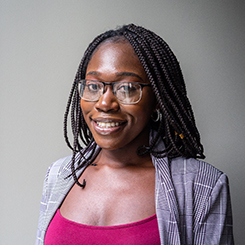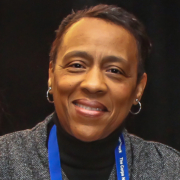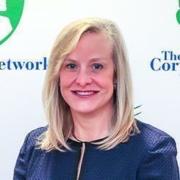
“Our goal is to create a beloved community, and this will require a qualitative change in our souls as well as a quantitative change in our lives.” ― Martin Luther King Jr.
A message from Mary Ellen Sprenkel, President & CEO of The Corps Network
My heart goes out to the friends and family of the victims of the hateful May 14 attack in Buffalo, NY. My heart goes out to all those feeling the reverberations of this event.
But what can I say? There really are no words to adequately capture how I am feeling, and I can’t imagine how so many Black people are feeling at this moment. Who am I to speak about any of this? I do know that I cannot be silent.
Silence is deafening and silence speaks volumes. Silence does not bring us any closer together or closer to healing. I think of the 2021 book by Stuart Lawrence, Silence is Not an Option: You Can Impact the World for Change.
In writing this, I also recall the words of Howard Beale, a fictional character from the 1976 film Network: “All I know is that first, you’ve got to get mad…I’m as mad as hell.”
In order for us to heal, however, we need more than anger. Where we must start is by taking an honest examination of our current situation. As a white woman, I would not even begin to speak for Black people, but here are some of the realities of our times. The first anti-lynching bill was introduced in Congress in the year 1900. It is appalling that it took until the twentieth century for such a proposal to come forward; it is abhorrent that it took until 2022 for anti-lynching legislation to pass.
Today, in the 21st century, we are also still discussing voting rights. As of January of this year, legislators in at least 27 states had introduced, pre-filed, or carried over 250 bills with restrictive voting provisions. If enacted, most of these proposals would disproportionately impact communities of color.
These facts cut to the heart. And yet, in the recent Supreme Court confirmation hearings for incoming Associate Justice Ketanji Brown Jackson, Sen. Cory Booker reflected, “[Black people] didn’t stop loving this country, even though this country didn’t love them back.”
There are so many actions we still need to take as a country to demonstrate that we value racial equity, but there are also so many smaller actions we can take as individuals. To my colleagues in the Corps world, I thank those who are working with intention to create safe spaces for Black and Brown young people to process, discuss, and grieve while feeling supported by their community.
As we sadly know all too well, while this latest act of white supremacist violence happened in Buffalo, it could have happened anywhere. This was not only an attack on the Black community of Buffalo, but on Black people. It is easy to stay quiet and want to look away, but we know this was not an isolated incident. We have a responsibility to examine and counteract the currents in our society that can drive people to such a place of hatred. We need words as well as action in order to heal and better prevent future senseless tragedies. It’s through actions that we can help honor the lives and legacies of the victims of this terrorism.
In challenging times, I look to the thousands of youth and young adults in our Corps. I remind myself, that our young people are a force for good. A force for change.
At our recent annual conference, we were honored to be joined by Elizabeth Yeampierre, Executive Director of UPROSE, the oldest Latino community-based organization in Brooklyn, NY. She highlighted how young people have always played a significant, leading role in fighting for justice for Black and Brown people. As we look to take action, we must turn to our young people. Go to the community, listen, and then do.
Resources for action and learning:
- 7 Ways You Can Take Action for Racial Justice Right Now, Global Citizen
- Action Steps to Fight Against Systemic Racism, YWCA – Columbus, OH
- How to take action against racism right now, YW Boston
- Being Antiracist, National Museum of African American History & Culture
- What does it mean to be antiracist? – a handout from the Racial Healing Handbook: Practical Activities to Help You Challenge Privilege, Confront Systemic Racism, and Engage in Collective Healing, by Anneliese A. Singh, PhD, LPC – via the National Museum of African American History & Culture
- See The Corps Network’s Moving Forward Initiative Resource Library for additional materials. Learn more about The Corps Network’s Moving Forward Initiative here.


































































